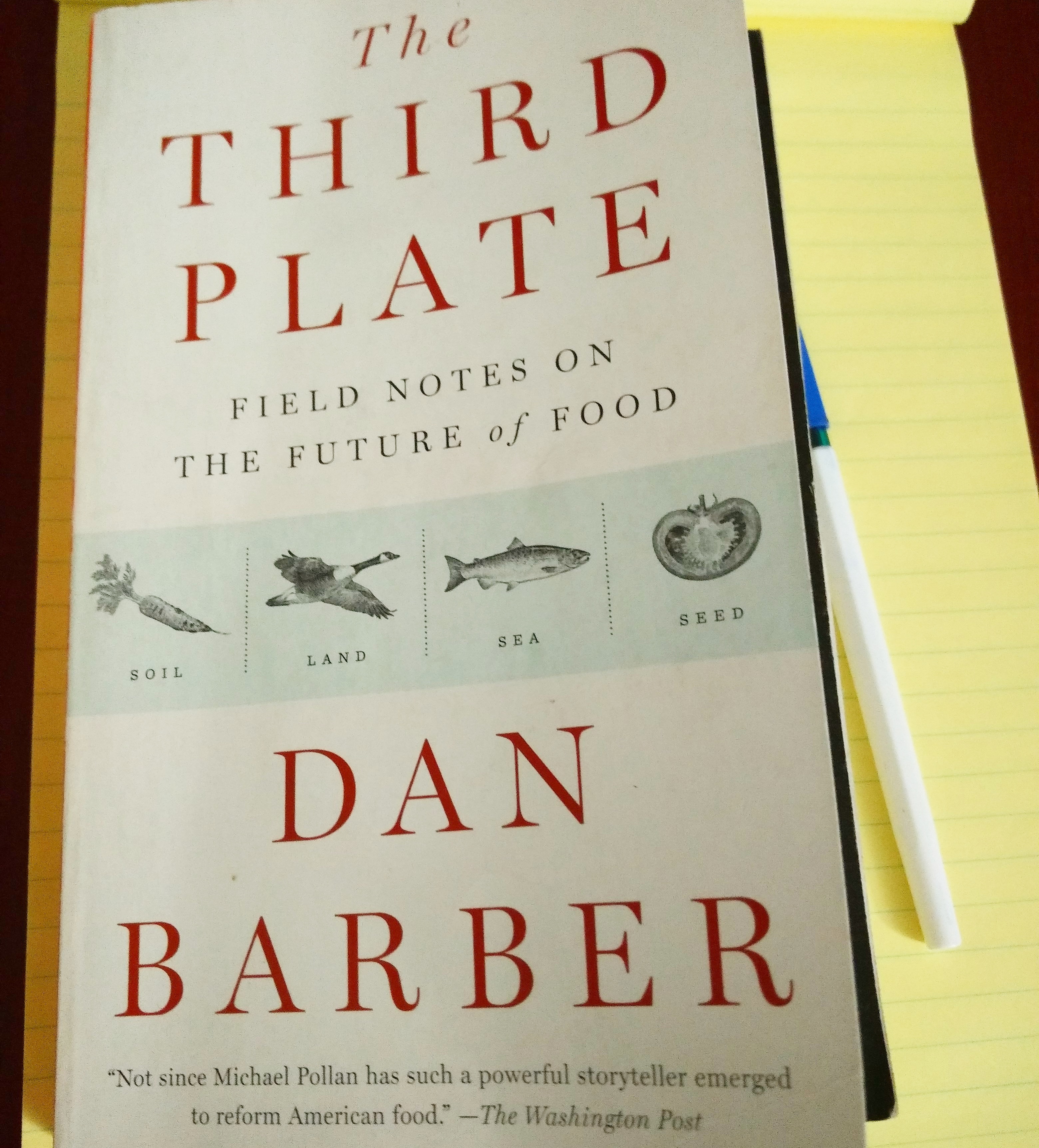The future of food
A while ago I read this article “The End Of Food“, and it made me apprehensive about the future of food. I could not fathom a world where food would be replaced, and eating would become an occasional thing to do. When chef Dan Barber was asked to illustrate the future of food, his version of “The Third Plate” – points towards a future where cuisine-
“goes beyond raising awareness about the provenance of ingredients and -like all great cuisines- begins to reflect what the landscape can provide.”
While there was relief to see food in this prediction and not just a mish-mash of ingredients to provide us with sustenance, there was also the understanding that any prediction will extend from our food “present”.
Our food “present”, something most of us take great pride participating in as consumers is the “farm-to-table” movement. But as chef Barber points out –
“Farm-to-table may sound right-it’s direct and connected-but really the farmer ends up servicing the table, not the other way around. It makes good agriculture difficult to sustain.”
Looking into the actual manifestation of the “farm-to-table” concept, Barber envisages a culinary future that embraces this movement in totality. From the invisible microorganisms in the soil, to “ecological networks” – The Third Plate makes us realize that there is more at play than what we can quantitate.
“He shook his head slowly, with the calm acceptance Eduardo had shown in the face of losing half of his goose eggs to hawks.”We’re farming extensively, not intensively,” he said.”This is the ecological network.The flamingos eat the shrimp, the shrimp eat the phytoplankton. So the pinker the bellies, the better the system.” The quality of the relationships matters more than the quantity of the catch”
In his interview with Eater, Barber explains how this model could be implemented to support the farmer, and not just work our way through its advantages.
“For certain farms, it means crops that become for the farmer a sunk cost. They don’t get sold, buckwheat or barley or rye or millet in some cases. Austrian winter peas are a crop that a lot of grain farmers will grow. They don’t have a market. They don’t come to the farmers market, there’s not really a distribution chain for them, so they end up going into animal feed and they end up making very little money off of them. And where they make their money is on the crops like wheat.
So for chefs like me to say, I’m going to support and buy and celebrate the wheat, what I’m really supporting and buying and celebrating is the cream of that farmer’s very diversified system. I’m not talking about all those other crops. And The Third Plate is an attempt, anyway, to look at those in-between crops. An attempt to look at the whole farm. And the whole animal too, but I think we know that already from nose-to-tail. So we’ve got to expand that and look at it in a more holistic way.”
Supporting the whole farm also entails supporting variances. Why is this difficult? For the simple reason that many of us value uniformity and consider it to be indicative of a good product.
When Barber talks about his restaurant’s trials with a whole emmer wheat and his pastry chef’s attempts at making whole wheat brioche using the same, it becomes evident that this not as straightforward as it sounds.
“He modified the recipe again, raising the water temperature, mixing the dough even longer, and changing the size of the mold. After several days of testing, he reported that he finally understood the new harvest.”
I first read about Dan Barber when I came across his pop-ups wastED which address the issue of food waste and the perception of what can be considered edible. Chef and co-owner of the Blue Hill New York City, and Blue Hill at Stone Barns, Barber is the recipient of multiple James Beard Awards. The Third Plate opens up a new side to the celebrated “farm-to-table” movement. If we truly imbibe this movement and respect nature’s transactions as well, we might be able to relish a single carrot just like we would relish our favourite meals. Sounds idyllic, doesn’t it? Yes, but reading The Third Plate made me realize that it might be possible too.
For more information visit http://www.thethirdplate.com/
Similar posts which may interest you.

